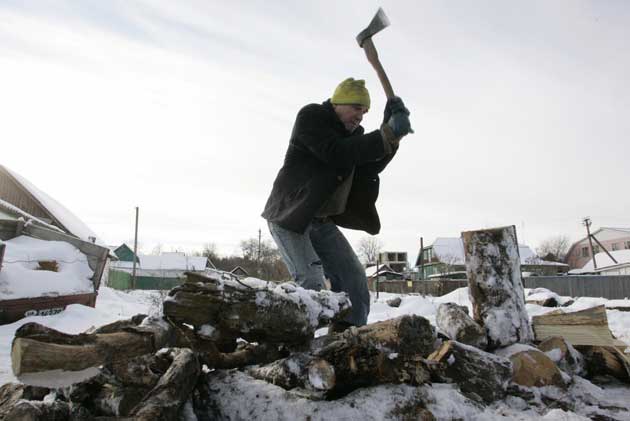Gas war prompts crisis talks in Brussels
Europe starts to feel the pinch as Russian and Ukrainian state-run energy giants trade blows. David Randall reports

Your support helps us to tell the story
From reproductive rights to climate change to Big Tech, The Independent is on the ground when the story is developing. Whether it's investigating the financials of Elon Musk's pro-Trump PAC or producing our latest documentary, 'The A Word', which shines a light on the American women fighting for reproductive rights, we know how important it is to parse out the facts from the messaging.
At such a critical moment in US history, we need reporters on the ground. Your donation allows us to keep sending journalists to speak to both sides of the story.
The Independent is trusted by Americans across the entire political spectrum. And unlike many other quality news outlets, we choose not to lock Americans out of our reporting and analysis with paywalls. We believe quality journalism should be available to everyone, paid for by those who can afford it.
Your support makes all the difference.The gas dispute between Russia and Ukraine was causing widespread collateral damage in Europe yesterday, as supplies were disrupted to at least seven countries. With accusations still flying back and forth between Moscow and Kiev, a concerned European Union is to hold crisis talks in Brussels tomorrow.
Bulgaria is the latest country to suffer a fall in gas supplies, joining Turkey, Greece, Macedonia, Romania, Hungary and Poland, which also reported drops. The chief executive of Bulgargaz, Dimitar Gogov, said: "The pipeline pressure has dropped and we are getting smaller deliveries as of Saturday morning."
Russia supplies more than 90 per cent of the Balkan country's annual gas needs. The EU, which gets a fifth of its gas from pipelines that cross Ukraine, has enough gas stockpiled to manage without Russian supplies for several days, but could face difficulties should problems go on for weeks.
The dispute began on Thursday, when Russia's state-controlled gas monopoly, Gazprom, halted supplies to Ukraine, saying Kiev had failed to pay its gas bill and that talks on 2009 prices had broken down. Gazprom wants Ukraine to pay $418 (£288) per 1,000 cubic metres of gas, but Ukraine says the most it can afford is $235 – and then only if Gazprom pays more for gas transit. Gazprom says it already has a gas transit deal to 2010. It also claims that Ukraine owes $600m in fines for the late payment of bills of $1.5bn. Ukraine's state energy firm, Naftogaz, says it paid the $1.5bn to an intermediary.
The accusations don't end there. Gazprom has said Ukraine was stealing gas destined for Europe, while Ukraine's state-run gas company denied this, and said it had used some of its own gas to keep the pipeline system to Europe operational. Then, yesterday, Naftogaz accused the gas monopoly of "blackmail". It repeated its denials that it had been stealing gas, and said it had increased gas supplies to Romania and Hungary to make up for a shortfall of Russian transit gas.
The dispute has a wider context. Russia has never been happy with the idea of Ukraine as a separate state, deeply resented the Orange Revolution that brought President Viktor Yushchenko to power, and has been angered by Kiev seeking to join Nato. Complicating this is the internal battle for influence between President Yushchenko and the Prime Minister, Yulia Tymoshenko.
Nor does the state of the protagonists' economies help matters. Russia and Ukraine both face recession this year after years of growth that averaged 7 per cent annually. Ukraine has seen a drop-off in investor confidence and steep falls in its currency, the hryvnia, that have not been stemmed by an International Monetary Fund loan. The only benefit is that falling production has reduced industrial energy consumption by a quarter, leaving the country with nearly three months of domestic supply in gas reservoirs.
Russia has been hit by falling energy prices. Timothy Ash, an economist at the Royal Bank of Scotland, said in a note to clients: "With oil and commodity prices way down, it [Russia] desperately needs the export revenues now and cannot afford to disrupt energy export revenues. With Urals oil prices at one-quarter of last year's highs, the energy supply balance has shifted against Moscow."
Russia, the world's biggest energy supplier, is anxious not to tarnish its reputation as a stable alternative to Middle Eastern producers, just five months after the war in Georgia. Ukraine, for its part, is keen not to upset Germany and France by allowing gas supplies to be disrupted.
Join our commenting forum
Join thought-provoking conversations, follow other Independent readers and see their replies
Comments